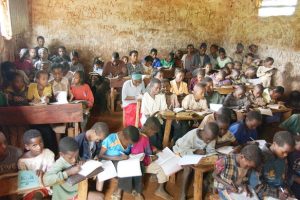
Ethiopia possesses a wealth of indigenous knowledge that can significantly contribute to nation-building. Ranging from cultural ceremonies that promote togetherness, such as cultural and religious festivals to well established conflict resolution mechanisms, the country has numerous indigenous wisdom that reinforce social cohesion, peace, unity and national development.
However, as many agreed, these days, indigenous wisdom seems to be underutilized due to several reasons, including rapid modernization that often sidelines traditional practices, and a declining interest among younger generations to engage with indigenous knowledge systems.
Experts and elders emphasize the importance of recognizing, preserving, and integration of indigenous knowledge into national policies to strengthen social cohesion, enhance, cultural identity and promote sustainable development, emphasizing indigenous knowledge not only benefits local communities but also bolsters the nation’s overall resilience and unity.
In line with this, The Ethiopian Herald spoke with Seasoned Playwright and Poet Ayalneh Mulatu to gain his insight.
According to him, indigenous knowledge serves as a cornerstone for peaceful coexistence and national development. Ethiopia’s rich historical tapestry provides a cultural foundation that is vital for fostering unity among its diverse population.
Ayalneh commended the resilience of Ethiopian youth who, despite facing numerous challenges, proudly assert, “Ethiopia is my country, and I am an Ethiopian.” This sentiment reflects a growing recognition that the nation’s diversity is a blessing rather than a burden.
Ethiopia’s multifaceted identity, characterized by a rich array of languages, traditions, and customs, holds immense potential for storytelling that celebrates its rich cultural heritage. From age-old agricultural techniques to a profound respect for the environment, the nation is rich in cultural narratives that foster community and reconciliation, further enriched by its vibrant musical traditions.
While acknowledging the value of modern education, Ayalneh emphasized that it should be grounded in indigenous knowledge. He cautioned against the appropriation of Ethiopian music and culture by external influences, citing instances where the unique musical traditions of the Derashe community have been misrepresented. According to him, such appropriations dilute the authenticity of Ethiopian cultural expressions and undermine the contributions of local communities.
Drawing parallels with countries like Japan, China, and India, Ayalneh asserted that sustainable development thrives on a foundation of cultural integrity. Successful nations embrace their rich cultural legacies instead of mimicking foreign paradigms. He stressed that Ethiopia’s art and culture must return to their roots, prioritizing genuine self-expression over superficial imitations.
A country committed to development must invest in its foundational culture. In essence of this, Ethiopia should focus on homegrown solutions, recognizing the invaluable wisdom embedded within each ethnic group. For instance, the Gamo community exemplifies rich cultural practices that promote peace and reconciliation.
Ayalneh also emphasized the need for comprehensive reform in the education system to effectively address existing gaps. Such reform is crucial to help the young people, who represent the future of the nation, adequately prepare themselves to overcome contemporary challenges. By tailoring educational curricula to incorporate indigenous knowledge and cultural practices, Ethiopia can cultivate a generation deeply grounded in its heritage and better equipped to shape the nation’s future.
He believes that there is still time to initiate these changes. The urgency for transformation is paramount, as today’s youth are poised to shape the nation’s future. By fostering a deeper understanding of Ethiopia’s diverse cultures and integrating these elements into education, the country can harness its youth’s potential to build a more cohesive and peaceful society.
Ethiopia’s path to development lies in embracing its rich cultural heritage. By focusing on homegrown solutions and reforming the education system, the nation can empower its youth to leverage their cultural identities as sources of strength and unity. Wisdom from each ethnic group, such as that of the Gamo community, can guide efforts to restore peace and foster collaboration, he reiterated.
Ayalneh’s aspiration for a culturally grounded education system underscores the importance of acting now to ensure that Ethiopia’s future is built on a solid foundation of its cultural legacy. The time to embark on this vital journey is indeed now.
By adopting a culturally inclusive approach into its education system, Ethiopia can transform its human capital into a powerful development agent, effectively converting resources into usable materials and ensuring food security. When students learn about their diverse heritage, including systems like the Gadaa and Shengo, they gain a deeper understanding of community values and the importance of collaboration.
This approach will benefit Ethiopia by enhancing food production and sustainability through the incorporation of traditional agricultural practices. Moreover, it fosters tolerance and unity among various ethnic groups. An education that celebrates diversity promotes mutual respect and understanding, nurturing a culture of tolerance.
As students engage in discussions about conflict resolution and communal decision-making, they learn to address differences constructively, reducing tensions and fostering harmony. Empowered communities can collaboratively create economic opportunities; ensuring local resources are utilized effectively for the benefit of all, he added.
By focusing on cultural heritage in education, Ethiopia can cultivate a generation equipped to transform challenges into opportunities. This approach not only enhances togetherness, peace and security but also lays the groundwork for a prosperous, peaceful nation where tolerance thrives.
Ayalneh emphasized that artists hold significant responsibilities within society. They must embody the community’s essence in their work, take on active leadership role and engage meaningfully with their communities. Equally important, society should embrace all forms of art with balance and appreciation.
Ayalneh believes Ethiopia is filled with hope and potential. By fostering a generation that values and upholds its cultural heritage and traditions, the nation can achieve new heights of progress and prosperity. Through their commitment to cultural expression and leadership, artists can play a pivotal role in shaping a brighter future for Ethiopia. He concluded with a personal commitment to contribute his share to nurturing the next generation.
BY MENGISTEAB TESHOME
THE ETHIOPIAN HERALD FRIDAY 27 JUNE 2025





